Abstract
This article presents the results of a survey conducted over the summer of 1992 on the use of information sources by professionals in the field of aging. In particular, factors affecting the use of electronic information sources were investigated. The data provide a demographic profile of North American gerontologists, with a predictably wide range of disciplines and types of practice represented. Several factors were found to have an impact on the gerontologists' utilization of electronic information sources. Respondents who used a larger-than-average number of computer applications were found to make relatively more use of electronic sources, including online searches, CD-ROM indexes, library OPACs, and other databases searched by remote access. Attendance at library workshops was found to increase the amount of end-user searching but not the amount of library-mediated searching. Respondents also reported which databases they used and which they considered most important. MEDLINE was the most frequently mentioned database across all disciplines, including the health and social sciences. Computer databases were ranked least important out of six listed sources of information, and only 5% of respondents reported having used an electronic current awareness profile.
Full text
PDF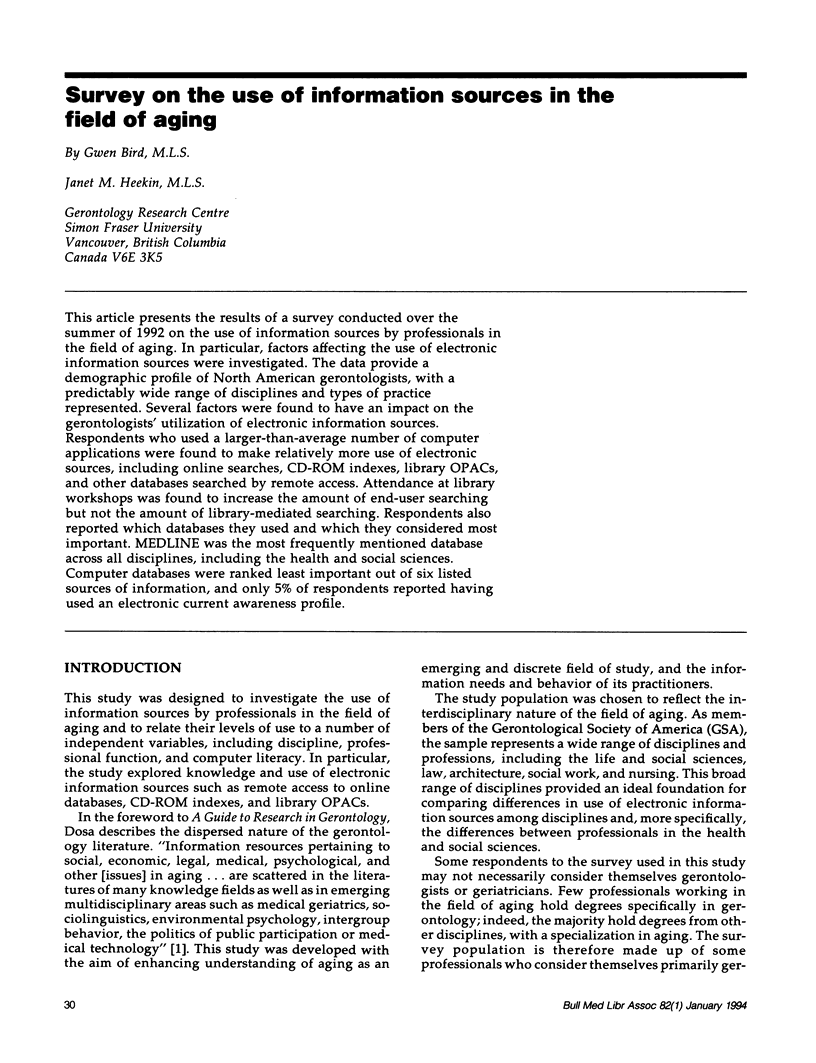
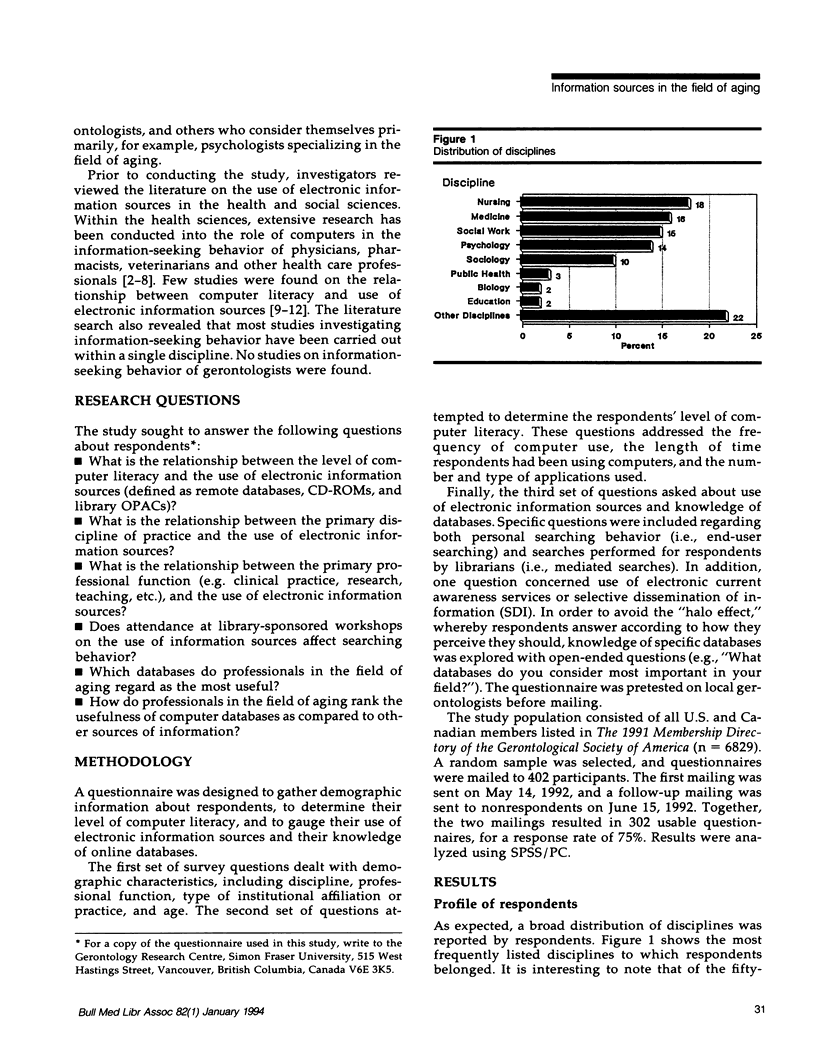
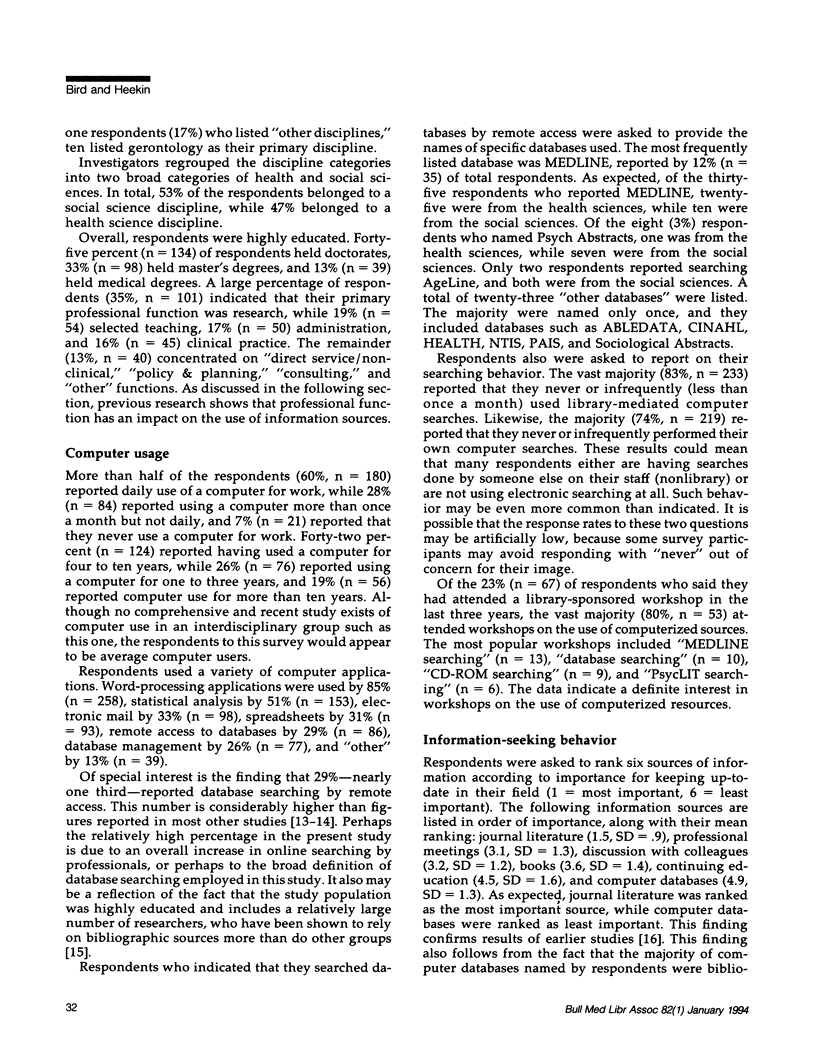
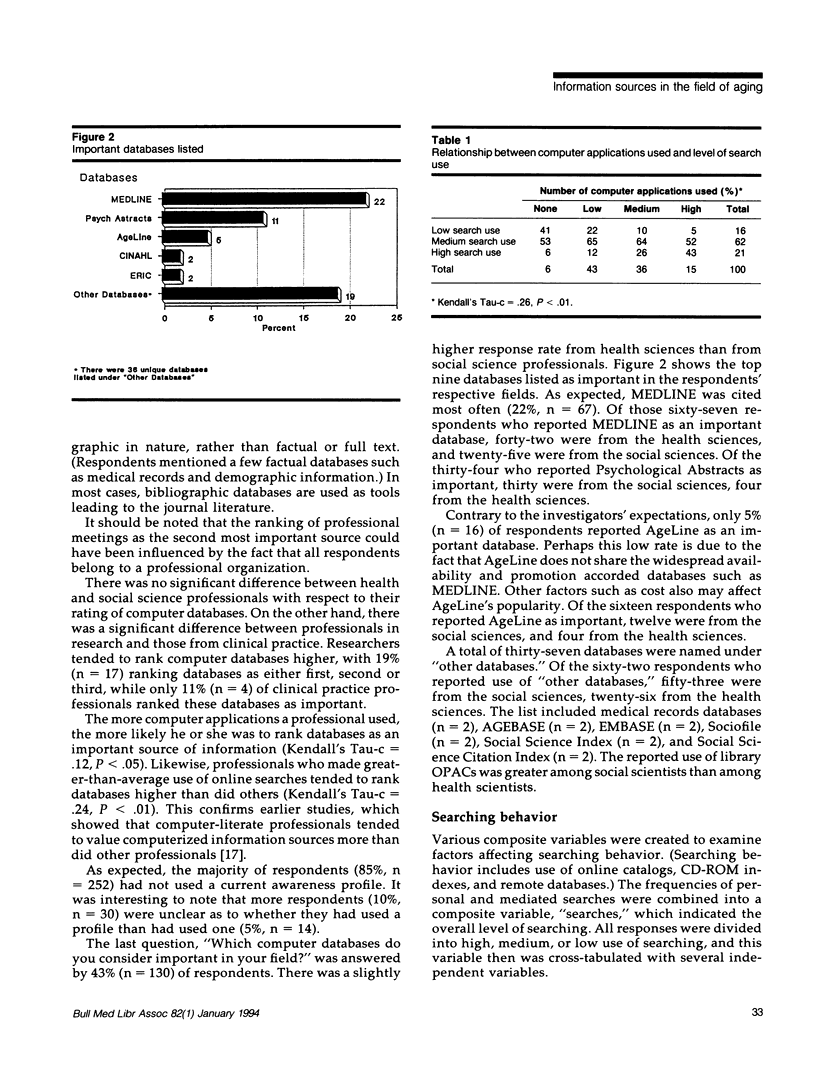
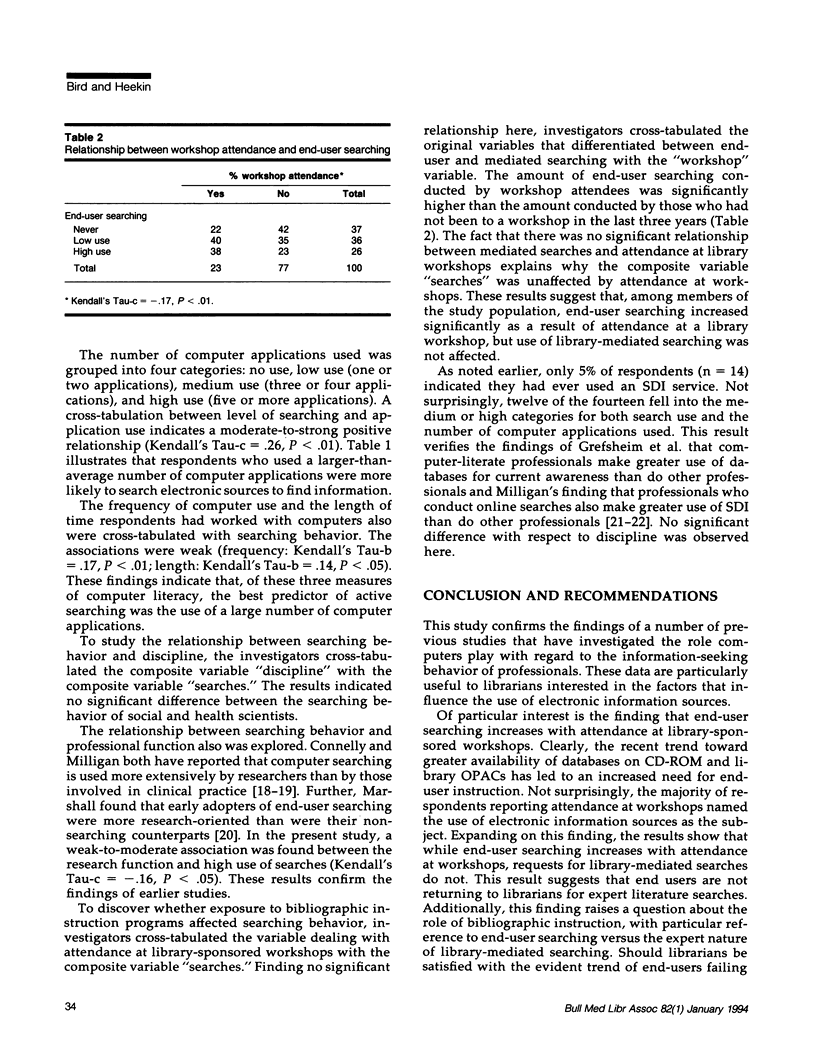
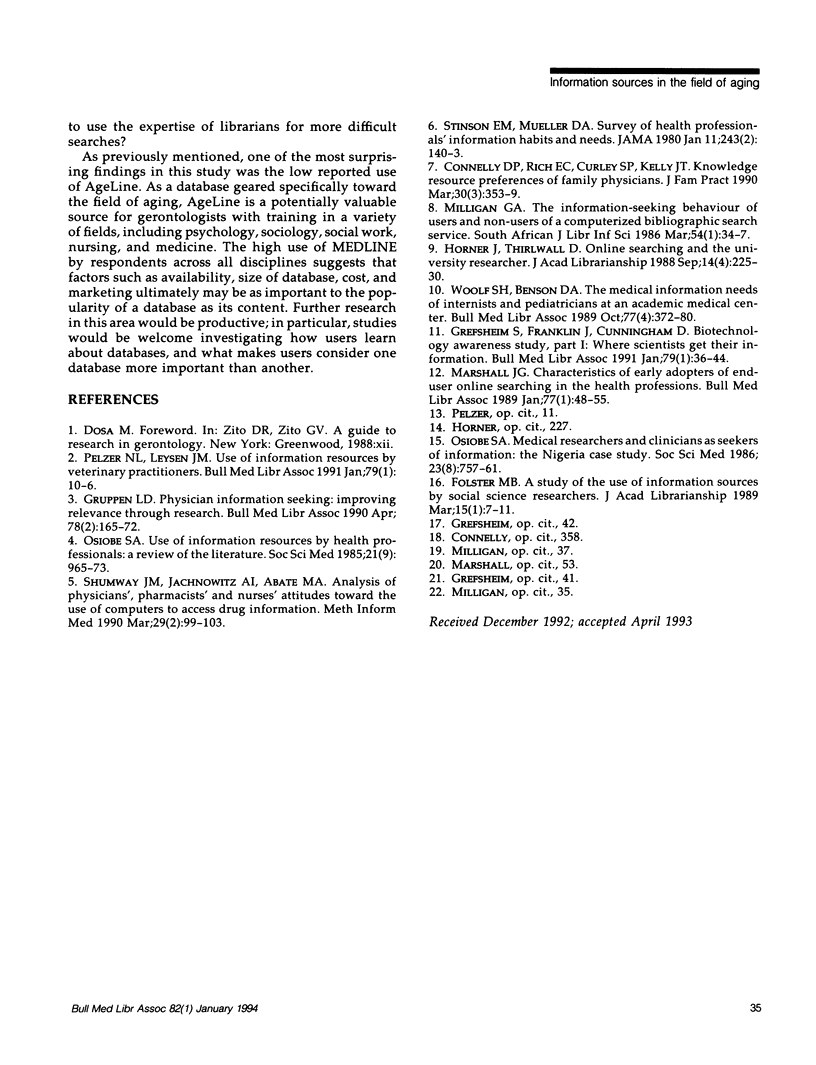
Selected References
These references are in PubMed. This may not be the complete list of references from this article.
- Connelly D. P., Rich E. C., Curley S. P., Kelly J. T. Knowledge resource preferences of family physicians. J Fam Pract. 1990 Mar;30(3):353–359. [PubMed] [Google Scholar]
- Grefsheim S., Franklin J., Cunningham D. Biotechnology awareness study, Part 1: Where scientists get their information. Bull Med Libr Assoc. 1991 Jan;79(1):36–44. [PMC free article] [PubMed] [Google Scholar]
- Gruppen L. D. Physician information seeking: improving relevance through research. Bull Med Libr Assoc. 1990 Apr;78(2):165–172. [PMC free article] [PubMed] [Google Scholar]
- Marshall J. G. Characteristics of early adopters of end-user online searching in the health professions. Bull Med Libr Assoc. 1989 Jan;77(1):48–55. [PMC free article] [PubMed] [Google Scholar]
- Osiobe S. A. Medical researchers and clinicians as seekers of information: the Nigeria case study. Soc Sci Med. 1986;23(8):757–761. doi: 10.1016/0277-9536(86)90272-8. [DOI] [PubMed] [Google Scholar]
- Osiobe S. A. Use of information resources by health professionals: a review of the literature. Soc Sci Med. 1985;21(9):965–973. doi: 10.1016/0277-9536(85)90418-6. [DOI] [PubMed] [Google Scholar]
- Pelzer N. L., Leysen J. M. Use of information resources by veterinary practitioners. Bull Med Libr Assoc. 1991 Jan;79(1):10–16. [PMC free article] [PubMed] [Google Scholar]
- Shumway J. M., Jacknowitz A. I., Abate M. A. Analysis of physicians', pharmacists', and nurses' attitudes toward the use of computers to access drug information. Methods Inf Med. 1990 Mar;29(2):99–103. [PubMed] [Google Scholar]
- Stinson E. R., Mueller D. A. Survey of health professionals' information habits and needs. Conducted through personal interviews. JAMA. 1980 Jan 11;243(2):140–143. [PubMed] [Google Scholar]
- Woolf S. H., Benson D. A. The medical information needs of internists and pediatricians at an academic medical center. Bull Med Libr Assoc. 1989 Oct;77(4):372–380. [PMC free article] [PubMed] [Google Scholar]



